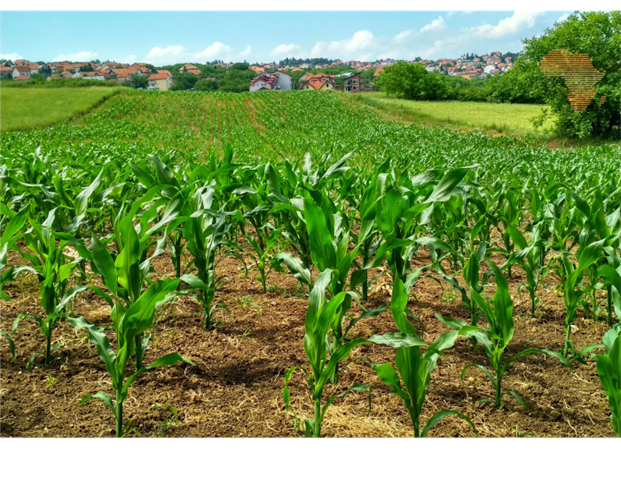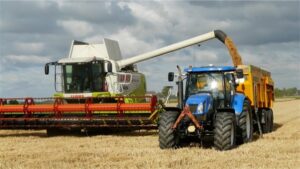
Introduction
With climate change accelerating, food security continues to be a topical issue globally. In Africa, even though significant progress has been made in the past decade, Food security remains a challenge. This situation is mainly due to inadequate infrastructure that affects agricultural yield, transportation, and trade.
Investment in infrastructure development has the potential to boost food security in Africa, and this blog will examine the significance of infrastructure development in enhancing food security in the continent.
Private investors, governmental agencies, and development finance institutions (DFIs) have come to acknowledge the crucial role of investing in supply chain and infrastructure development to boost agricultural output, promote food security, and reduce trade costs. Such investments have the potential to generate significant economic benefits that extend to local and rural populations, who heavily rely on agriculture for subsistence.
This article aims to examine the current state of food security in Africa and the vital role that critical infrastructure plays in achieving this goal. In addition, we will profile some of the recent infrastructure investments that are playing a pivotal role in enhancing food security in Africa.
A brief overview of the current state of Food security in Africa
According to the Global Report on Food Crises 2022 mid-year report, at least one in five Africans goes to bed hungry and an estimated 140 million people in Africa face acute food insecurity. This is due to various factors such as inadequate infrastructure, poor governance, climate change, conflicts, and poverty. Food insecurity is not only limited to rural areas but also affects urban areas, where high food prices and limited access to affordable and nutritious food continue to pose a significant challenge.
Most African countries still suffer from a persistent structural vulnerability, which has been exposed by the war in Ukraine. Despite having 60% of the world’s unused arable land, Africa still struggles to feed itself due to factors such as low yields, inadequate infrastructure, and market distortions in the agricultural sector.
Africa is the continent with the greatest number of landlocked countries. Consequently, many countries face extraordinary costs in accessing global markets. To move beyond food security and attain food sovereignty, African countries must embrace a food systems approach to scale food production, critical to attaining this is a substantial investment in infrastructure across the value chain for agricultural production.
For agriculture to be competitive and cost-effective, adequate, and well-functioning infrastructure is crucial. This includes;
- Efficient transportation infrastructure for delivering inputs to farms and transporting produce to markets and storage facilities.
- Energy infrastructure is essential for the development of agro-industries,
- Information infrastructure vital for timely dissemination of technological information to farmers and agro-industrialists as well as facilitating communication between producers and markets.
- Water infrastructure for irrigation, and water-based power generation necessary for providing adequate and affordable power in Africa.

The role of infrastructure in achieving food security in Africa
Infrastructure plays a critical role in enhancing food security in Africa. Inadequate infrastructure hinders agricultural productivity, making it difficult for farmers to produce enough food for the growing population. Moreover, poor transportation infrastructure affects the distribution of food, leading to food wastage and price hikes.
Rural infrastructure plays a critical role in food security, economic growth and empowerment for the African rural poor. Investments in rural infrastructure, particularly rural roads, storage, processing and market facilities will be required to support the anticipated growth in agricultural production and improve competitiveness.
The African Development Bank has identified investment in both hard and soft infrastructure as crucial to tackling food security and accelerating the realisation of food sovereignty in Africa, the identified enablers to achieve this include;
- Increase the availability of finance for investments into hard infrastructure (roads, energy, water, logistics) that support the feasibility and cost competitiveness of scaling agricultural production and agribusiness.
- Focus on developing rural infrastructure to both improve potential output and connect farmers to other value chain actors and markets.
- Investment in ICT platforms to support financial transactions, disseminate market information, and support value chain modernization.
- Developing the level of human capital in agribusiness by attracting talent and developing skills.
Critical Infrastructure to Facilitate Trade
Infrastructure development should focus on critical areas that facilitate trade, such as roads, railways, and ports. Good transportation infrastructure makes it easy to transport food from production areas to markets, reducing food wastage and ensuring a stable supply of food. Moreover, improved transportation infrastructure facilitates the distribution of inputs such as fertilizer, seeds, and pesticides, which boosts agricultural productivity. The critical infrastructure required to facilitate trade and tackle food security in Africa include;
- Transportation Infrastructure: Good transportation infrastructure, including roads, railways, and airports, is essential for facilitating the movement of goods and inputs such as fertilizers, seeds, and equipment. It also enables the efficient transport of food from production areas to markets, reducing food waste and ensuring a stable supply of food.
- Ports and Logistics Infrastructure: Efficient ports and logistics systems are essential for importing food and other essential commodities into African countries. Poor port infrastructure leads to delays and congestion, leading to increased costs, which ultimately affects food security.
- Energy Infrastructure: Adequate energy infrastructure, including renewable energy, is critical for the growth of agro-processing industries, leading to high-value addition and improved employment opportunities. It is also necessary for providing affordable and reliable power to rural areas, where most agricultural activities take place.
- Water Infrastructure: Water infrastructure, such as irrigation systems and dams, is crucial for enabling farmers to grow crops all year round and improve yields. It is also necessary for generating hydropower, which can provide affordable and clean energy to rural communities. This will help address the food insecurity caused by the predominant raid-fed agriculture in Africa.
- Information and Communication Technology (ICT) Infrastructure: Access to timely and relevant information is critical for farmers and agro-industrialists to make informed decisions. ICT infrastructure, including internet connectivity and mobile phone networks, can facilitate the dissemination of information and improve market access for farmers.
Significance of ports and logistics for Trade and Food Security in Africa
The availability and efficiency of ports directly affect the economies of the countries it serves, since more than 80% of global trade is carried by sea. Ports and logistics are crucial for facilitating trade in Africa.
Many African countries rely on imported food to meet their nutritional needs. Therefore, efficient ports and logistics systems are essential for importing food and other essential commodities.
Poor port infrastructure leads to delays and congestion, leading to increased costs, which ultimately affects food security. Hence, investments in modern and efficient ports and logistics systems are essential for enhancing food security in Africa.
The role of power infrastructure in Trade and Food Security in Africa
According to the Food and Agricultural Organization of the United Nations (FAO), On average, 50% of the food produced in African countries is wasted. This is mainly a result of the inefficient supply chain infrastructure within the agricultural sector.
Power infrastructure is also critical for enhancing trade and food security in Africa. Lack of reliable electricity supply hinders the growth of agro-processing industries, leading to low value addition and limited employment opportunities. This results in low income for farmers and traders, which ultimately affects food security. Therefore, investing in power infrastructure, such as renewable energy, can enhance value addition in agriculture and facilitate the growth of agro-processing industries, leading to improved food security.
Profile of Recent Infrastructure Developments across Africa
I. Trademark East Africa’s investment in transport infrastructure:
TMEA is an aid-funded organization that works to promote trade and economic development in East Africa. The organization has invested in several transport infrastructure projects that aim to improve food security in the region.
For example, TMEA has supported the construction of the Busia One-Stop Border Post (OSBP) between Kenya and Uganda, which has reduced the time and cost of cross-border trade. TMEA has also supported the rehabilitation of the Tororo-Gulu railway line in Uganda, which has improved the transportation of agricultural produce from the northern regions of the country[1].
II. DP World’s Investments in Road, Rail and Maritime Infrastructure
DP World, a Dubai headquartered global logistics provider has spent the past 20 years on the continent meeting the great demand for road, rail, maritime and air freight by investing in exactly the kinds of infrastructure, logistics and fully integrated services that will accelerate the AfCFTA and add maximum value as intra-African trade increases.
It currently employs 9,000 people on the continent and operates 10 ports and terminals. These efficient, well-equipped sites drive down costs and will support export competitiveness, help African countries grow global trade relationships and further integrate economies into the global trade system[2].
DP World has also initiated the construction of a new edible oil terminal at the Port of Berbera in Somaliland, aimed at lowering supply chain expenses and generating crucial local employment opportunities. A long-term lease for the facility has already been secured. The terminal will initially have a storage capacity of 18,000 tonnes, which will be expanded as demand grows.
III. The African Finance Corporation (AFC) Investments in Power, Roads and Water Infrastructure
AFC focuses on overcoming Africa’s infrastructure deficit and has been successful in understanding the infrastructure needs that will accelerate the implementation of the AfCFTA, including transport and logistics, power and technology.
The recognition that high-quality infrastructure significantly increases bilateral trade intensity among African countries was a main driver for AFC to both add value and bridge infrastructure gaps. So far, AFC has led or contributed to approximately $4 billion in sovereign facilities for power, roads, water and other infrastructure assets[1]
Conclusion
Enhancing food security in Africa requires a holistic approach that addresses the challenges facing the agriculture sector, transportation, and trade. Infrastructure development is crucial for achieving food security, and investments in critical areas such as transportation, ports, logistics, and power infrastructure are essential.
By investing in infrastructure across Africa, the private sector and DFIs partnerships will play a crucial role in accelerating the accomplishment of food security in Africa.
Additionally, improving governance, enhancing the business environment, and addressing climate change challenges is crucial for achieving sustainable food security in Africa.
